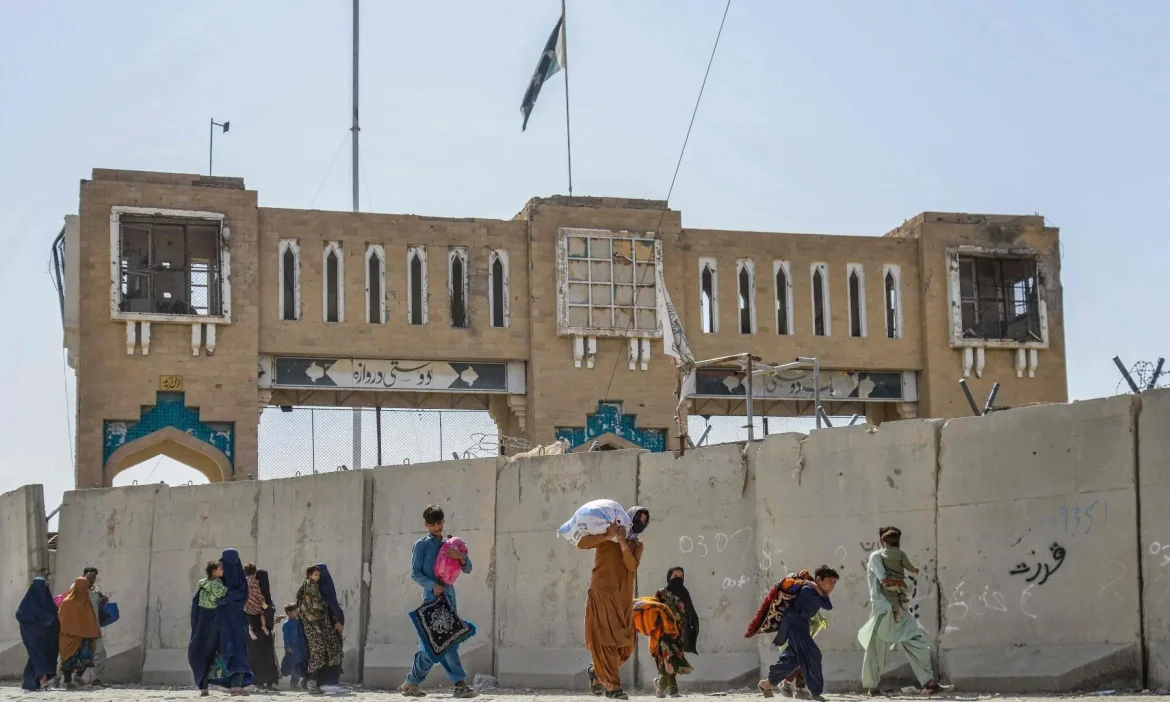For long Pakistan enjoyed cordial relations with Afghan Taliban. This cordiality was based shared ideology, strategic objectives and community on regional issues. Since 1996, Taliban are perceived as patron by Islamabad. During 1990s Pakistan provided Afghan regime with financial backing, diplomatic support and sanctuaries. Additionally Pakistan also provided refuge to hundred thousands of helpless Afghans. Based on the historical influence, Pakistan always perceived Afghan Taliban as a ‘strategic asset’ for managing terrorist groups like TTP on its Western Border. But current developments are evident to the fact that Pakistan’s hopes/calculations were misplaced.
Since 2021 Taliban takeover of Kabul, security situation in Pakistan got decorated.
2023 was the deadliest year with 650 reported incidents of terrorism, resulting in large number of causalities mostly the military personals. Majority of terrorist incidents took place in KPK and Balochistan, adjunct to Afghanistan. TTP, having strong ideological and operational connections with Afghan Taliban, was held accountable for all these attacks. Pakistan forces launched military operations against TTP to curb the menace of terrorism in Pakistan. But these operations were not fruitful. As they only halted terrorist activities tempartiorily and TTP affiliates relocated to Afghanistan to get reorganized and initiated fresh wave of terrorism in Pakistan.
Being the principle trade partner of Afghanistan and host of millions of Afghan refugees, Pakistan resorted to diplomatic engagements in convincing Taliban regime to take stronger action against the TTP. And not to let it territory to be used against Pakistan. But remained unsuccessful in compelling Taliban regime to address the issue effectively. Thus in late 2023, Pakistan has decided to expel illegal Afghan refugees. This policy only exacerbated tensions and undermined the already fragile ties between Pakistan and Afghanistan.
Tension reached climax on October 11, 2025, when Afghan Taliban launched an attack on Pakistan’s military post along Pak-Afghan border. Afghan regime claimed the strikes are in retaliation to the airstrikes by Pakistan in various places in Afghanistan including Kabul. Islamabad did not formally recognised the strikes. Retaliating to Kabul’s offensive posturing Pakistan retaliated. As the Ministry of Foreign Affairs states: “Pakistan exercising its right of self-defence, not only effectively repulsed the assaults all along the border but also inflicted heavy loses on Afghan forces and affiliated Khwarjis in term of men, material and infrastructure. These infrastructures were used to plan and facilitate terrorist attacks against Pakistan”. MOFA again retreated its demand of stronger actions against the terrorist elements. It states: “—-Continuous presence of terrorists elements on Afghan soil and freedom of activities enjoyed by them in Afghanistan are well documented by UN Monitoring Teams—Pakistan expect concrete and verifiable actions against these terrorist elements by the Taliban regime—-”. On its part Afghan regime also claimed to inflict heavy damage to Pakistan. On October 15, 2025, Pakistan and Taliban regime announced a temporary ceasefire of 48 hours. But the violations of agreement was done by Fitna e Khawarij.
As the fight continued, various regional actors (particularly Qatar and Turkiye) employed diplomatic channels to ease tensions. On October 19, 2025 Pakistan and Afghanistan announced a ceasefire in Doha. As per the statement of Qatar’s foreign ministry both sides pledged to establish mechanisms to ensure peace and stability. And that further dialogue process will be continued for setting up the standard procedures and tactics.
Pakistan’s Defense Minister, Khawaja Asif stated that “cross border terrorism from Afghanistan will be ceased immediately and both sides will honour each other sovereignty and integrity”. He further confirmed a follow-up session of dialogue process in Istanbul, on October 2025. Main agenda of this conference will the enforcement of border surveillances system to mitigate terrorism.
According to Zabihullah Mujahid, Taliban Spokes Person, key component of the agreement was mutual pledge to refrain from supplying arms, supporting hostile elements and targeting each other’s infrastructure, security forces or civilian population.
This ceasefire agreement is a commendable achievement, but it failed to address key causes of conflict. Afghan regime’s uncertain position for terrorist groups (especially TTP). Insufficient counter-terrorism collaborations and mutual mistrust, aggravates the persistent geo-political instability along Pakistan-Afghanistan border. From this point we move to our core question: How can a border be secured amidst the persistent occurrence of terrorist attacks?
The answer is no physical barriers, airstrikes, punishments or dialogue process can safeguard the frontiers when one side ignores armed individuals and terrorist groups operating within its territory. Afghans have never recognised Durand Line, which is already a case of conflict and functions more as a conflict zone rather than a boundary of control. To avert the persistence occurrence of violence along Pakistan border, Taliban regime must establish a legally enforceable pledge to dismantle safe havens and dissociate from transnational militant grouA collaborative and coordinated regional security framework can never be sustained by military actions. Though their potential for temporary impact and convincing other side for dialogue cannot be denied. Diplomacy is the vital component for long lasting peace as is evidence from the Doha episode. But dialogue and agreements without concrete actions are also vain. The upcoming summit in Istanbul will be a test for assessing both parties’ will to excel beyond empty assurances.
Ultimately, as long as terrorists retain the political, intellectual, and physical resources to traverse the Pakistan-Afghanistan border, it cannot be sufficiently secured. In considering border security within this context, it is essential to account for variables beyond mere manpower and surveillance capacity. The complexity of this issue is increased by the lack of political will, absence of reciprocal accountability, and strategic ambiguity. The non-existence of a unified counterterrorism strategy between the two nations has enabled non-state actors to exploit the disparity between their assertions of sovereignty and mutual trust. Until these underlying issues are resolved, the border will persist as a symbol of regional instability rather than national authority. (The author is: Assistant Professor at Riphah Institute of Public Policy ).
(Opinions expressed in this article are the author’s own and do not necessarily reflect the editorial policy of WNAM)


